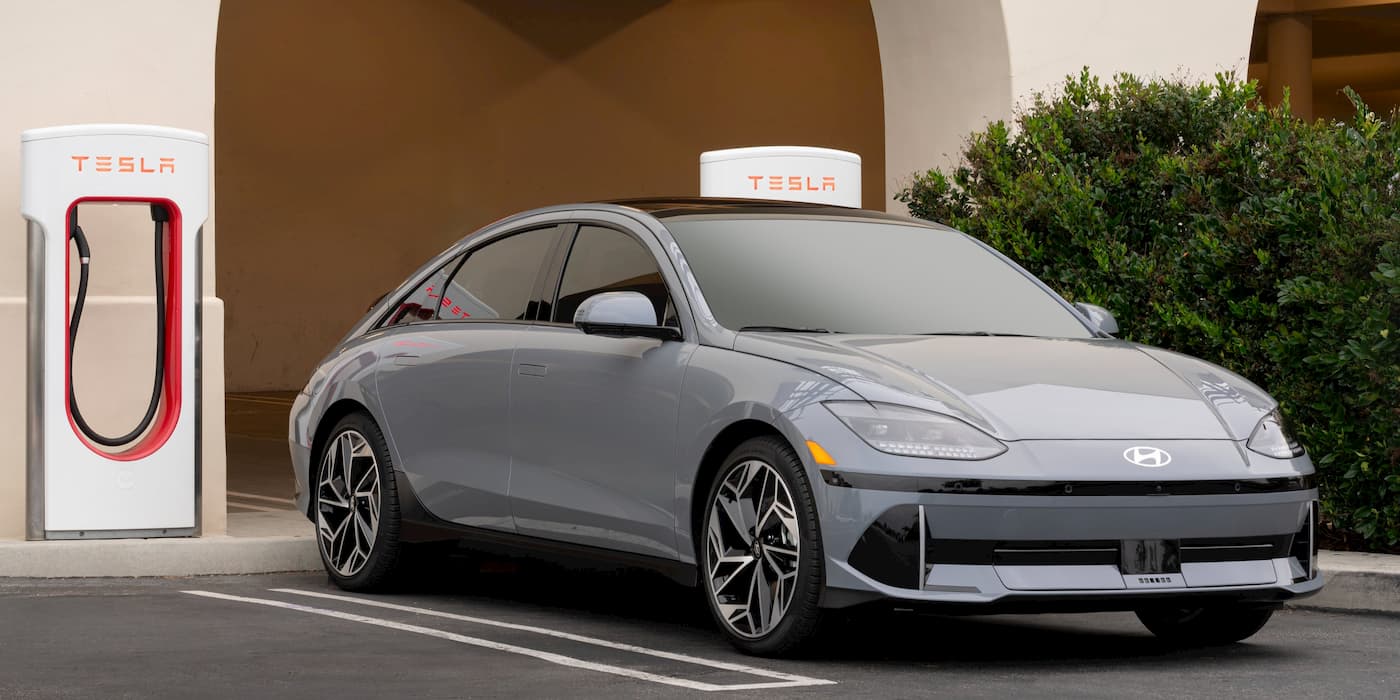
Despite talk of an “EV slowdown,” sales of electric vehicles are still growing. EV registrations grew another 3.8% in March as several automakers, including Hyundai and Ford, saw electric car sales surge.
EV registrations grew in March despite Tesla’s decline
According to the latest EV registration data from S&P Global Mobility, several automakers gained market share in March.
Big price cuts and lease deals boosted demand in the first quarter, as automakers are divided on which way the market goes from here. With new affordable models like the Volvo EX30 and Chevy Equinox EV, some see the momentum picking up in 2024.
Although the growth was slight in March, the EV share of the light vehicle market grew from 6.8% to 7.1%.
For the first three months of the year, electric vehicle registrations were up 5.2% (264,268), with a 6.9% share of the market.
Market leader Tesla had registrations fall 12% in March, dragging down the segment. Tesla’s market share fell to 52.4% compared to 61.5% a year ago. Meanwhile, Tesla’s new refreshed Model 3 could be the reason to blame with a 53% decline in registrations.
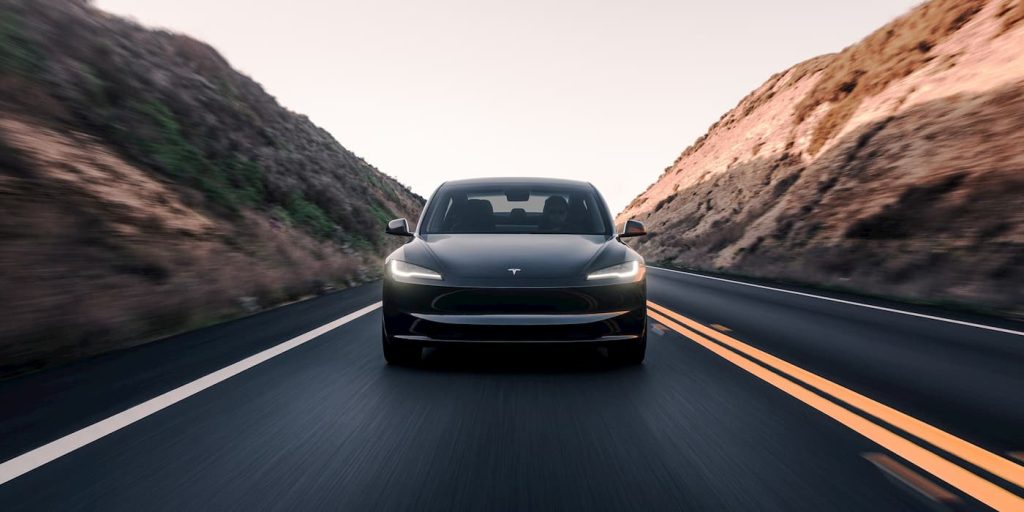
Tesla said the new Model 3 was supply-constrained in Q1. Some, including Tom Libby, associate director of industry analysis at S&P Global Mobility, expect the Model 3 to make a comeback this year.
Hyundai and Ford see EV registrations surge
Hyundai and Ford strengthened their positions in March as EV registrations accelerated. Ford had triple-digit EV registration growth, claiming the number two spot.
Driven by drastic price cuts, Ford sold 20,223 electric vehicles in the first quarter, up 86% from Q1 2023. The Mustang Mach-E was the second best-selling electric SUV, behind Tesla’s Model Y.

Ford’s F-150 Lightning remained the top-selling electric pickup in Q1, topping the Rivian R1T and Tesla Cybertruck.
Despite the success, Ford is pulling back on several EV initiatives. The company cut the workforce at its Rouge EV plant, where the Lightning is built, citing slower-than-expected demand. It’s also delaying around $12 billion in EV spending.
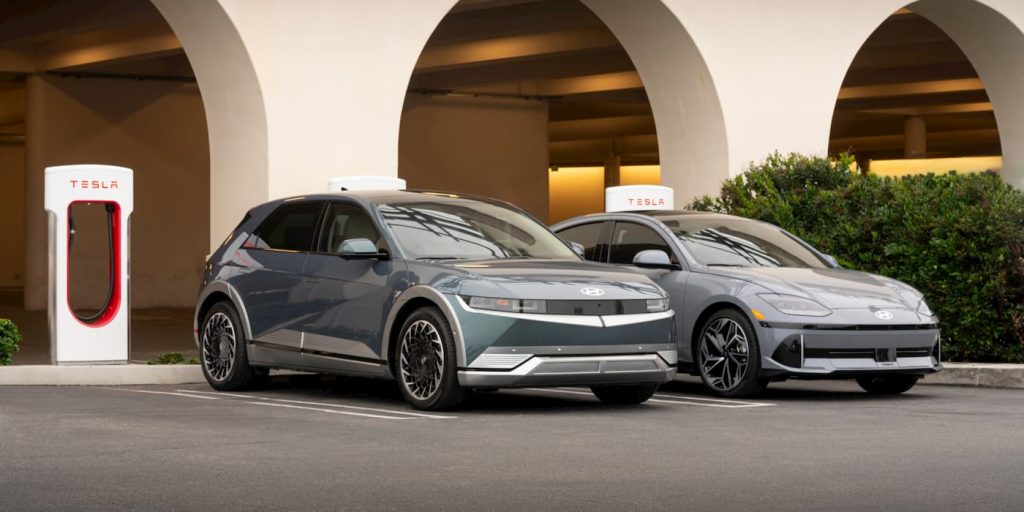
Meanwhile, Hyundai took third, with EV registrations doubling (+100%) in March. Hyundai set a new March and Q1 sales record with the IONIQ 5, IONIQ 6, and Kona Electric benefitting from strong demand.
Hyundai is one automaker that remains fully committed to selling EVs in the US, and it’s paying off. With some of the most affordable and fuel-efficient EVs on the market, Hyundai expects the momentum to continue this year.
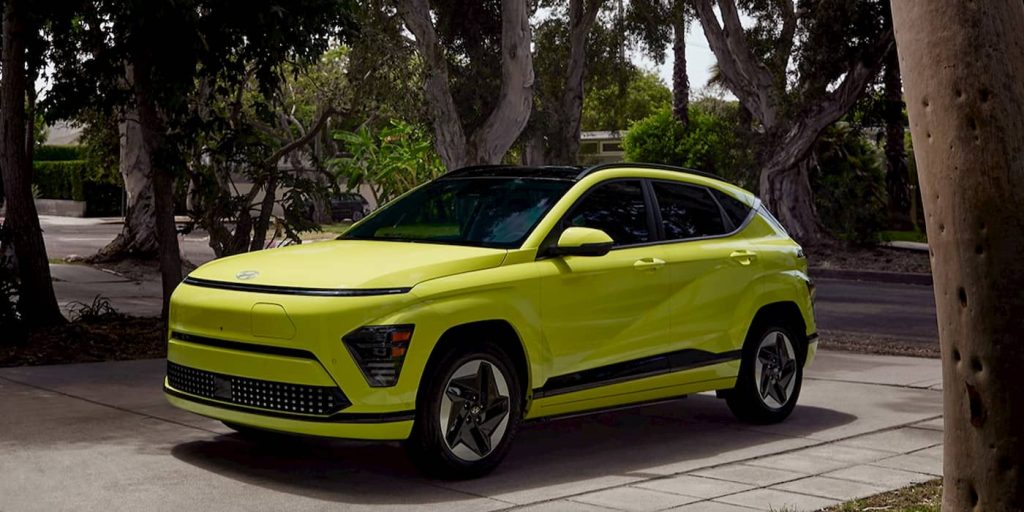
In a new interview, Hyundai Motor America CEO Randy Parker told Electrek that the company remains “all-in” on EVs.
Parker said Hyundai is “putting its money where its mouth is” as it looks to separate itself from rivals. Hyundai’s first dedicated EV and battery plant in the US is opening in GA later this year, which will help improve competitiveness. EVs built at the facility are expected to qualify for the $7,500 federal tax credit.
Hyundai’s US boss told Electrek the company is focused on giving buyers who may be on the fence about buying an EV confidence with more range, faster charging, and unique designs.
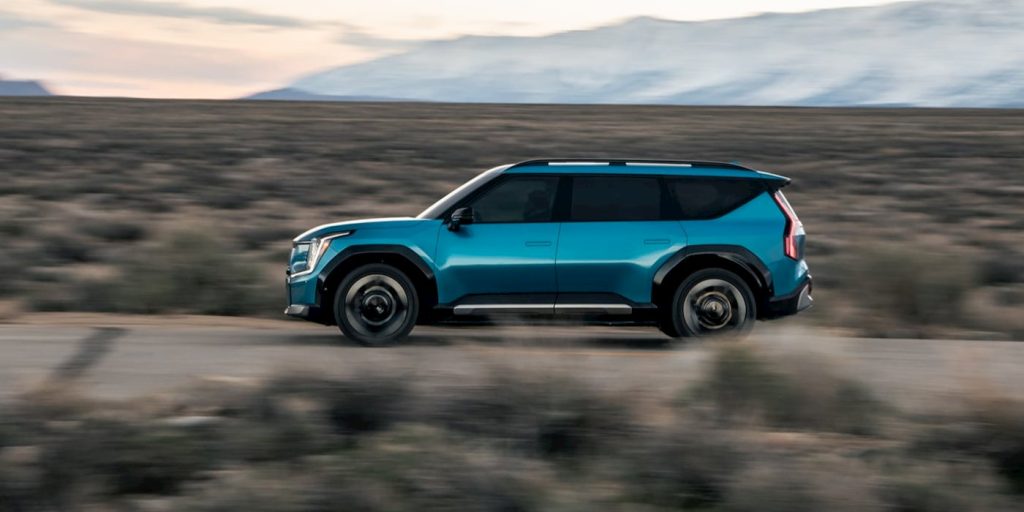
Hyundai’s sister company, Kia, also saw EV registrations double, placing fifth. Kia’s new EV9 is already making a big impact, with over 4,000 units sold in Q1.
Luxury automakers BMW (fourth) and Mercedes-Benz (fifth) both saw double-digit EV registration growth in March.

Rivian, with EV registrations flat in March but up 30% in Q1, placed seventh. Rivian is upgrading its manufacturing plant in Normal, IL, to improve efficiency.
Several others lost market share, according to EV registration data. Chevy’s March registrations slipped 66%, with Bolt EV production ending last year. Chevy hopes new EVs like the electric Equinox and Blazer can help spark growth. The Blazer EV had 498 registrations, while the Equinox had 13 as they began hitting dealership lots.
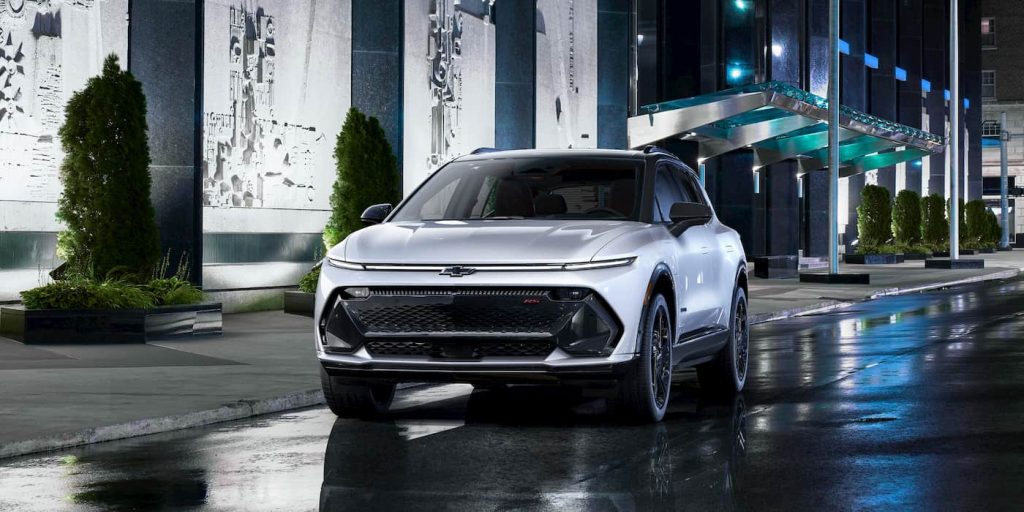
Top comment by David Keller
Hyundai is producing some great cars. I’ve driven the IONIQ 5 and 6 and love them. However they’ve really missed the boat on coordinating their support between the US and Canada; their mobile apt works in one country or another but not both. And their free charging is the same. Given the number of folks who live within and hour of the border and often are back and forth, it’s a real nuisance to cope with partial support. It really can’t be that difficult to merge those services, or at least make them reciprocal. I live in Boston and have a cottage in Quebec and regret buying my IONIQ 5, and now unlikely to add the IONIQ 9 as well. Other manufacturers have made the borders seamless; what’s the problem with Hyundai?
According to March registration data, Toyota (798), Lexus (819), Subaru (427), Fisker (565), VinFast (496), and Lucid (477) were all below the 1,000 mark.
Meanwhile, Japanese rival Nissan had 1,661 registrations for its Ariya electric SUV as it gained ground in the US.
With new exciting models hitting the market, it should be interesting to see which automakers top the list at the end of the year.
Source: Automotive News
FTC: We use income earning auto affiliate links. More.



Comments